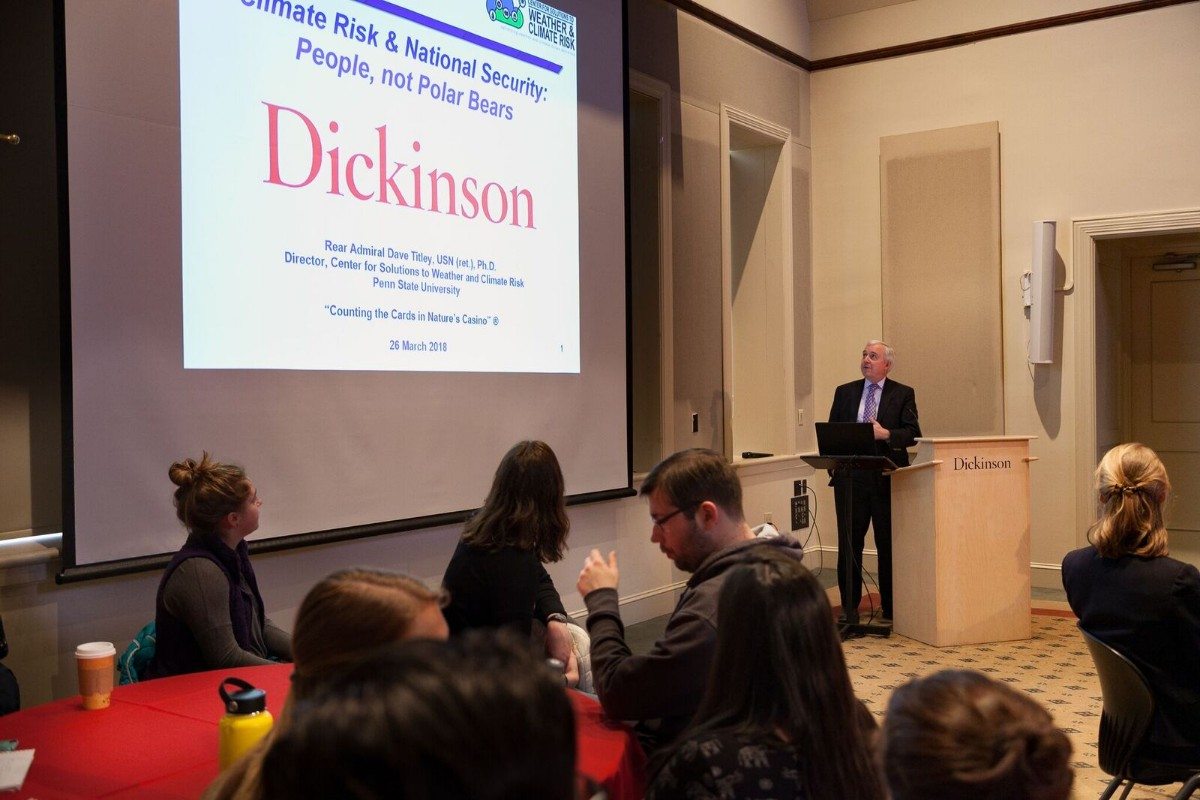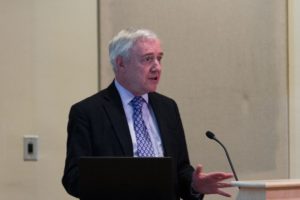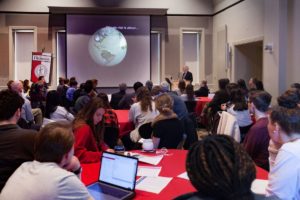 Photo Credit: Dickinson College
Photo Credit: Dickinson College
Event Recap: Preparing for the Future: Climate Change and National Security
The American Security Project hosted a program of events in Carlisle, PA with Dr. David Titley, Rear Admiral, USN (Ret). Dr. Titley spoke at both the Army War College and Dickinson College on the subject of “Preparing for the Future: Climate Change and National Security.”
The events began at the United States Army War College. At the War College, Dr. Titley, gave a presentation to officers from the U.S. and abroad on the national security threats of climate change. The presentation incited numerous questions from the officers and ended in a deep discussion on the potential impacts and how the military can prepare.

Photo Credit: Dickinson College
The second event of the day was a larger lecture at Dickinson College. Over 100 students, faculty, and local legislative leaders attended the discussion. Dr. Titley opened by arguing that climate risk is about three things; people, water, change. People, communities, and entire countries will be impacted by climate change and even those who aren’t impacted will have to pay in some other way. In regards to water, he highlighted how the world has a relatively small amount of clean, fresh, and accessible water. Dr. Titley explained that the final component, change, connected the first two concerns. Humans developed in a time of relative climate stability.
“We knew what to plant, we knew when to harvest…if we build a village on the oceans edge, we knew it would stay on the edge.”
Unfortunately, that is about to change. Climate stability will not be the norm and planners will not be able to simply “look back in the rear view mirror” to plan for the future.
Dr. Titley then provided a brief overview of the climate science; joking that it is “cutting edge 19th century science,” as many of the theories behind climate science were identified in the 19th century.

Credit: Dickinson College
After going through the science, he outlined four main security threats of climate change; impacts to operating environment, impacts to infrastructure, making bad situations worse, and managing risk. Each will impact the security of our nation. Impacts to operating environments references that the military will have to adapt to new and changing environments. One of the key examples is the opening of the Arctic. Impacts to infrastructure relate to how bases across the US are seeing increased flooding, wildfires, and droughts; impacting their training and readiness. Making bad situations worse is about the “threat multiplier” characteristic of climate change. Deteriorating security situations are more likely to collapse with the added strain of climate change. Finally, managing risk is about preparing for all three of these and how they will interact with each other to undermine our security.
Ending on a positive note, Dr. Titley closed by outlining some ways for the students and other attendees to take action. A number of students asked questions after the lecture on the security impacts and challenge of development in a world of climate change.
ASP will be hosting numerous other similar events in the coming year across the country. For our upcoming events, click here.
For the full video recording and media references, see below.
ABC27 “Retired Navy admiral brings climate change talks to the Midstate”
The Sentinel “Admiral sees national security issues in climate change“






